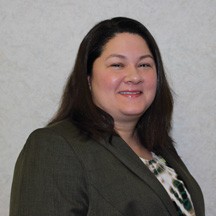Fully Addressing Your Financial Needs And Capabilities During Divorce
 By Evelyn M. Joiner, CPA, CDFA™
By Evelyn M. Joiner, CPA, CDFA™
Contemplating divorce or in the process of a divorce? Many overlook, or simply do not understand, the financial elements of a divorce. A Certified Divorce Financial Analyst® (CDFA™) can explain the financial aspects of divorce, help you evaluate all pending financial decisions, and empower you to make educated decisions during the highly emotional divorce process.
Financial decisions are complicated, and often irreversible. Uninformed decisions can be detrimental to your financial future, as well as time consuming and expensive. A CDFA™ provides you with an understanding of each proposed financial option so that you are ultimately placed in the best financial position. A CDFA™ will also give you a clear view of your short- and long-term financial future.
A CDFA™ works with you and your attorney to forecast the long-term effects of a divorce settlement, including details of tax liabilities and benefits. A proper divorce settlement should not only take care of your immediate family needs, but your retirement needs, as well. Many have false expectations about what their lifestyle will be after divorce. A CDFA™ can help ensure a stable economic future, and limit regret about financial decisions made during the divorce process.
The Institute of Divorce Financial Analysts (www.institutedfa.com) provides this example of how a CDFA helped one couple:
John and Jane are 40 years old and have two children. They own a home worth $165,000 with net equity of $77,500. Their IRAs and 401(k) retirement plan total $165,500 in value. John earns $90,000 a year and has take-home pay of $68,760 a year. Jane has never worked outside the home and has no job skills, but she hopes to get a part time job for $8 an hour with take-home pay of $8,900 a year. The following settlement has been suggested. After the divorce, Jane and the children will live in the house, which will be deeded to her. She will also receive $44,000 of the retirement monies and John $121,500, thus dividing the assets equally. John will pay Jane alimony of $600 per month for 5 years and child support of $225 per month per child. He will also pay college costs which start in 4 years. John’s expenses include his normal living expenses, child support, alimony and college costs. Jane’s expenses include support of the children and are reduced when each child leaves home. This appears to be a reasonably fair settlement. However, an analysis shows Jane’s assets will be completely depleted within seven years while John’s investments will grow dramatically.
To improve Jane’s financial future, the settlement could provide her with increased alimony of $1,500 per month for 10 years. This would actually cost John $1,005 per month in after-tax dollars. The correct child support according to the Child Support Guidelines is $1,125 per month for two children for a couple with their income. Jane also could be awarded an additional $24,300 from the retirement plans. She also may need to cut her expenses by 10%. An analysis with these changes show John will still have a surplus which he can add to his investments. If John stays within his budget and invests all of his extra income, his investments have the capacity to grow to $2.5 million by the time he is age 60.
Imagine where Jane and her children would be financially if she did not consult with a CDFA! This example illustrates how valuable financial planning is in reaching a more equitable economic resolution.
One of the most overlooked financial traps in a divorce relates to tax issues. Besides your filing status and who claims the dependents, other tax issues that need to be addressed include estimated tax payments, capital loss or net operating loss carryovers, and passive activity loss carryovers. It is also very important to understand the cost basis of the assets being divided, and any potential tax issues. Oftentimes, a spouse learns he/she owes a large tax bill when it is too late to do anything.
Consulting with a divorce financial professional, such as a CDFA™, is invaluable. A CDFA™ does not provide legal advice, but works with your attorney to help achieve an equitable settlement for you and your family, both in the short-term and long-term.
To learn more about CDFAs, please visit www.institutedfa.com.
Evelyn M. Joiner, CPA, CDFA™ works for the accounting firm of Sparano, Vincelette & Villano, CPAs in Wilmington, Delaware. Evelyn started her accounting career in 1999 and holds a Master’s degree in Taxation. Evelyn is the only CDFA™ in Delaware who is also a Certified Public Accountant. You can find Evelyn on LinkedIn at http://lnkd.in/dqjQm3y.


